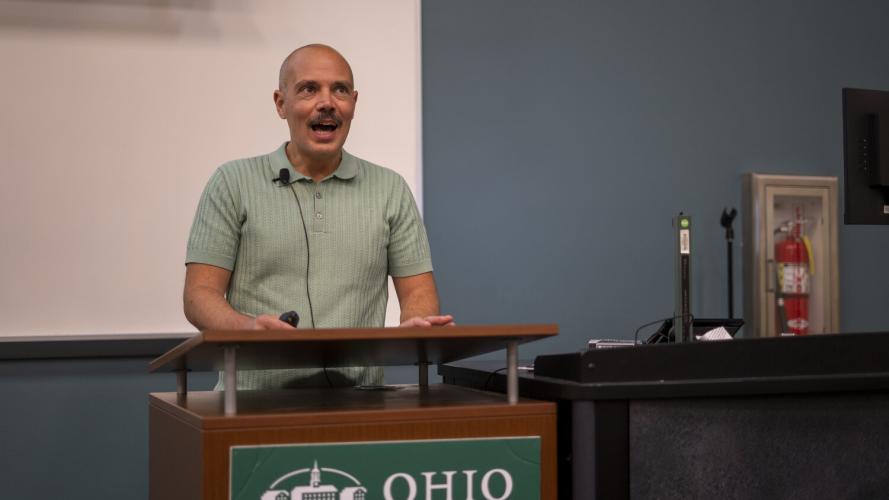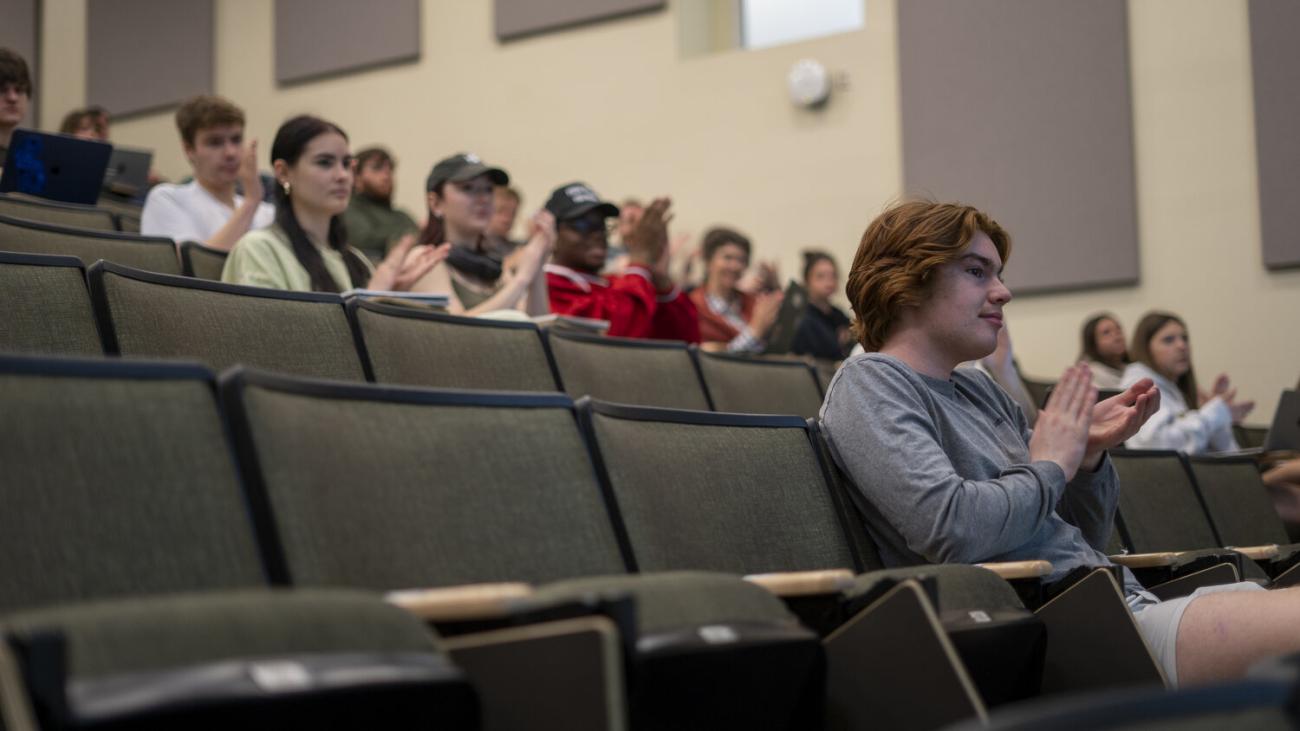
Zumkehr Prize Lecture addresses how story and song can provide hope for activists

The timing of his speech at Ohio University’s Scripps College of Communication on anti-fascist protest and activism is not lost on Daniele Salerno. Salerno gave the 2025 Zumkehr Prize Lecture on Monday, April 14, in Schoonover 145. The speech came as several international university students in the United States face deportation due to a Trump administration order to crack down on pro-Palestinian demonstrations on college campuses.
“When I was preparing for the lecture last week, I bought a newspaper and read an article about Ph.D. students being arrested,” said Salerno. “I decided to start my lecture talking about what is happening now.”
Salerno’s lecture was titled, “Activist Memory Cycles: Semiotic Labour and Social Change in LGBT+ Activism.” Salerno was one of the two co-authors of the prize-winning article, “‘Bella ciao’: A portable monument for transnational activism,” which was published in the International Journal of Cultural Studies. Salerno’s co-author, Marit Van de Warenburg, was not able to make the trip from the Netherlands for the lecture.
The Zumkehr Prize, supported by the Charles E. Zumkehr Professorship in Communication Studies at Ohio University, was awarded to the best article—as adjudicated by a three-member international and interdisciplinary jury of scholars—published in 2023 on a topic related to the study of public memory. Salerno and Van de Warenburg both earned a $2000 prize and an invitation to share their work in a lecture at Ohio University during the 2024-25 academic year.

“I was very excited to come here,” said Salerno. “It’s been a really excellent experience. I prefer to leave the attention to other people, but I was very happy to learn I won the award. It was unexpected.”
Salerno and Van de Warenburg worked on this project during the pandemic. The research examined the adaptation of the Italian anti-fascist protest song, “Bella ciao,” by a variety of activist groups around the globe. Those groups, Salerno and Van de Warenburg discovered, engaged in a practice called contrafacta or the substitution of a song’s lyrics while keeping its musical characteristics intact. After tracing the song’s adaptations through decades of use in several nations, Salerno and Van de Warenburg detail its recent appropriation by feminist activists in Spain, Argentina, and Poland “to build their repertoire of protest against femicide and in favor of abortion rights.” The song, Salerno and Van de Warenburg argued, “is continuously rewritten, reused, and relocated in different and new contexts and media, and for a range of causes,” making it—as the title of their article notes— “a portable monument to transnational activism.”
“We tried to answer the question of why so many activists used that song. It’s important because it shows how at the end of the day, people from Argentina to India struggling for their rights and for equality found a symbol of comfort a little bit,” said Salerno. “I think examples from former generations can help today. It’s not the first time this has happened, and the fact that other activists, other people, have gone through this, it can help to have some hope.”
The competition for this year’s prize, offered under the auspices of the Zumkehr Professorship, reflected the widespread international and interdisciplinary interest in the study of public memory. Scholars from 12 disciplines—working in eight nations—entered the contest.
